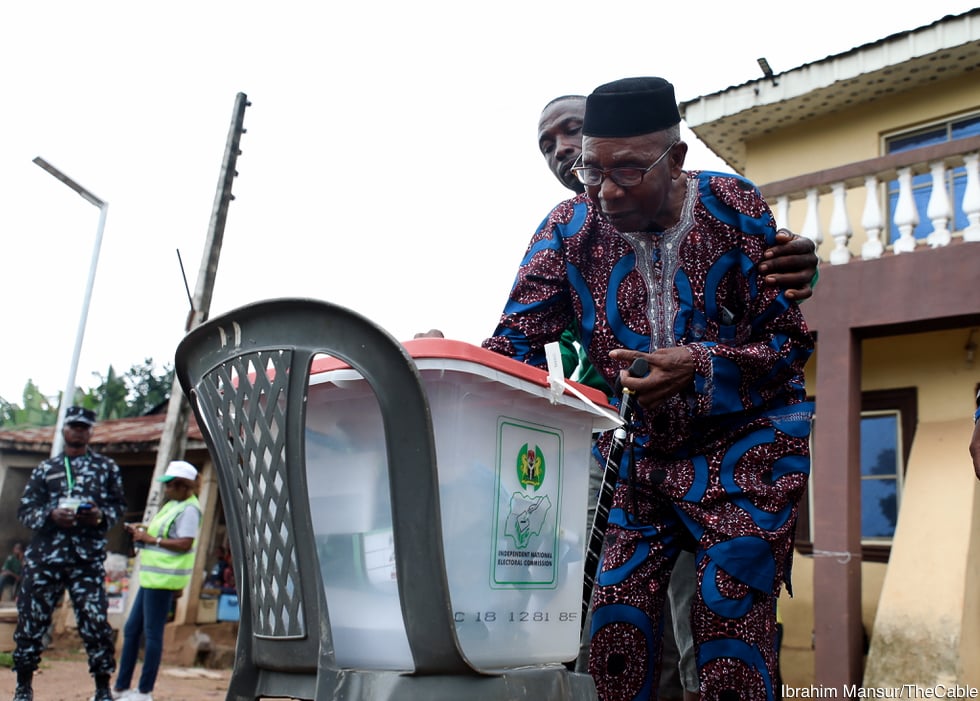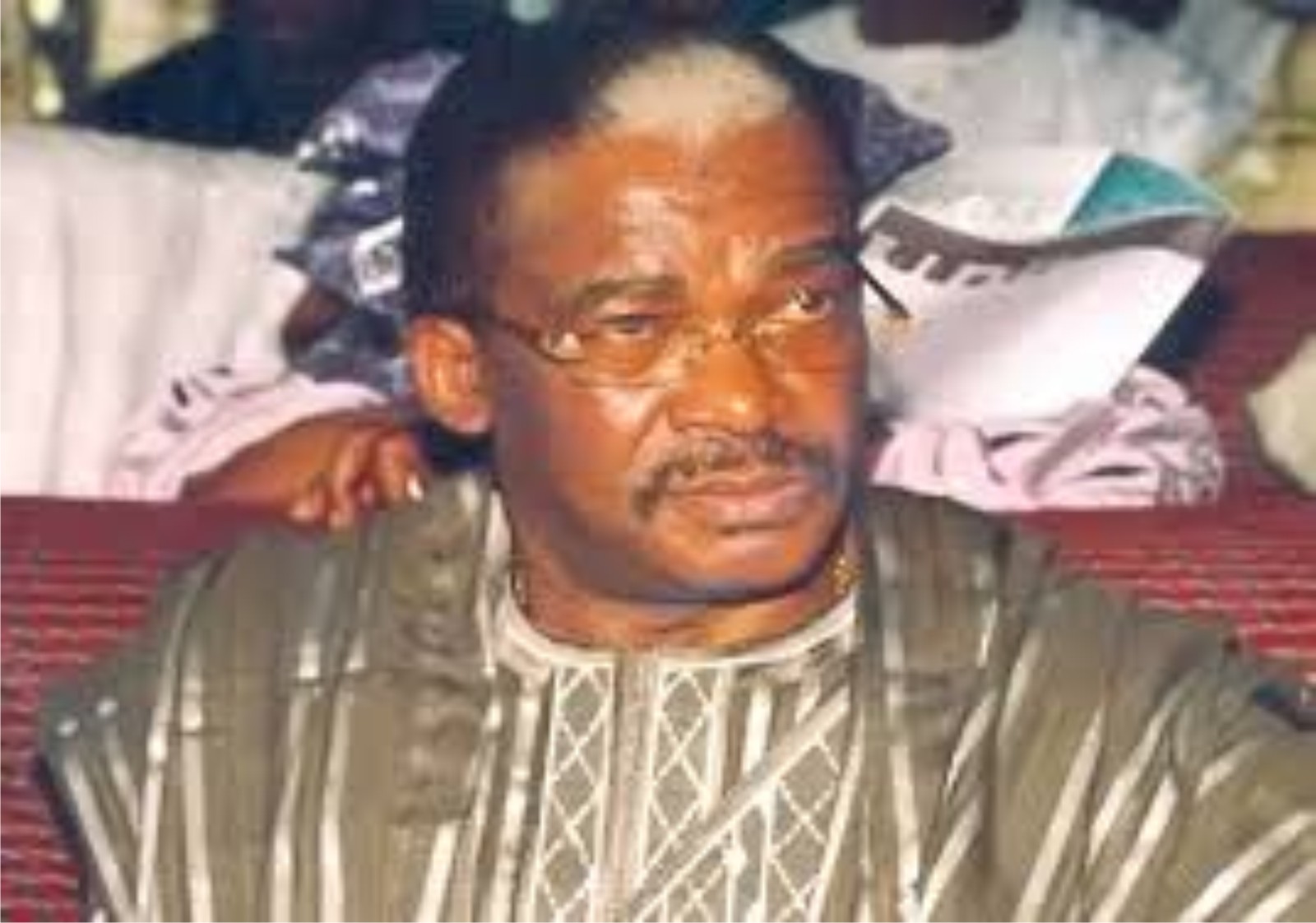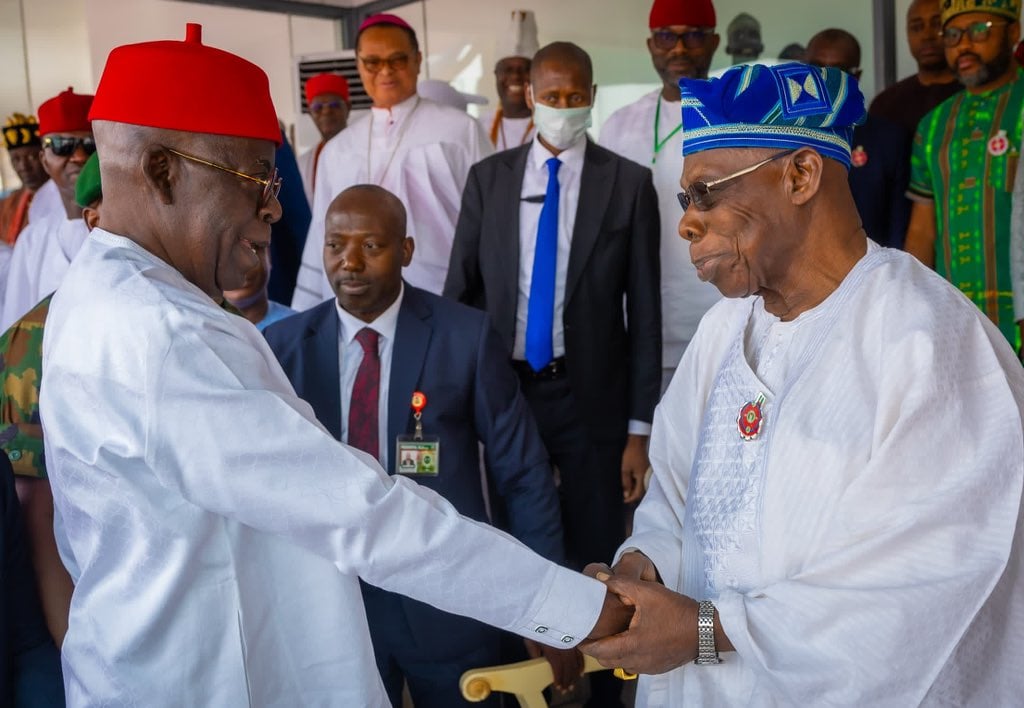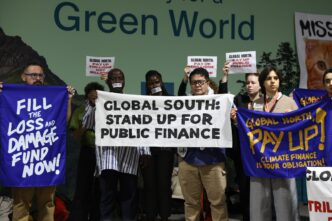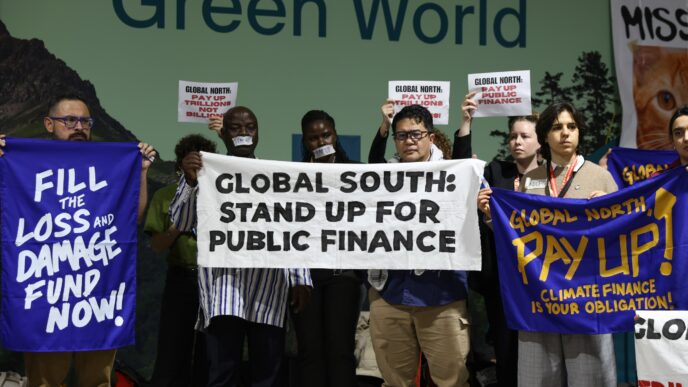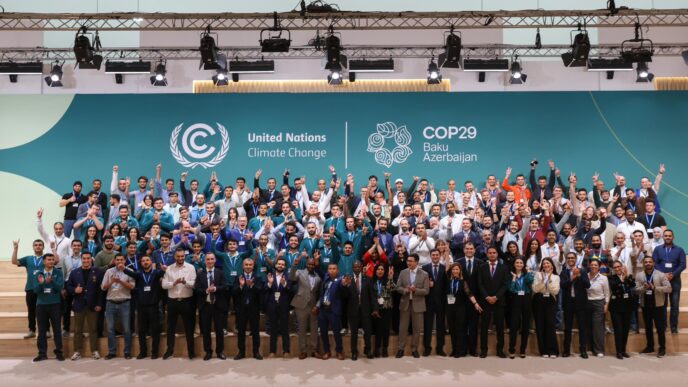Call her naïve but she spoke the minds of millions. I am talking about the woman interviewed by TVC during the Ondo state governorship election last weekend. Asked how the voting went, the woman, speaking in Yoruba, said: “Everything went peacefully. We have voted and we have collected money. Everything went well.” A lady (probably her daughter) sitting next to her was trying to restrain her from talking about the money part, but she resisted, repeating the same line about the voting and the money. For all you care, she was not naïve: she was just discussing a typical day in a voter’s life. In most parts of Nigeria, voters eagerly look forward to doing this quick business on election day.
Call him paranoid but he was not naïve. In another video from the same election, a man, on seeing some guys at the polling unit, started warning others about a looming danger. He kept telling the people (including a policewoman): “Be at alert… some people have surrounded this place… be at alert…” Before he finished delivering his security advisory, gun shots had started ringing out and, in the words of the legendary Fela, “everybody scatter scatter”. Now running away, the man added frantically: “I told you earlier on…be at alert…” In parts of the Federal Republic of Nigeria, election day is a day for sorrow, tears and blood. What is election without the shooting? Who does that?
Call them sore losers but they know the game. After APC’s Lucky Aiyedatiwa was declared winner, the PDP rejected the result. In a statement issued by Hon Debo Ologunagba, the PDP spokesperson, he said his party, all “lovers of democracy in Nigeria” and “across the world” have just witnessed the “worst election” conducted by the Independent National Electoral Commission (INEC)”. He called it the “height of electoral swindle, deceit and manipulation”, and added that the election “witnessed widespread merchandising, monetisation and barefaced vote buying and voter suppression”. By the way, nobody loses elections in Nigeria: when you don’t win, it is because your opponent rigged.
Democracy is practised in different shapes and sizes across countries and continents but the values of free and fair elections are non-negotiable. But in Nigeria, credible elections are still trying to find a home. Our elections are blood-stained. Votes are freely bought and sold. “One person, one vote” remains largely an aspiration. The judiciary is not reliable on matters of justice and is often an interloper. I acknowledge that the countries we call “democratic” today also went through a similar teething process and became refined along the way. But this is my worry: is Nigeria enjoying this underdeveloped electoral system so much that it is now stuck with it? Or is it still in transition?
Advertisement
I am particularly worried because we have been practising electoral democracy in fits and starts since 1960 but the transgenerational enemies within are refusing to let go. My excuse used to be that the military interventions of 1966 and 1983 stunted our democracy. I also used to say if the military had allowed our politicians to wobble, fumble and rediscover itself over time, Nigeria’s democratic culture would have been much refined and more advanced by now. But we have now enjoyed uninterrupted democracy for 25 years and we are still struggling with holding credible and peaceful elections. Does it mean our elections have plateaued at the wrong point on the learning curve?
Our electoral process has gone through different phases of reform since 1960 but they are always undermined by desperate politicians who will stop at nothing to get into power. There was a time we used wooden ballot boxes and people would vote inside kiosks. This was to guarantee secrecy and avoid voter intimidation. Votes would be collated and results announced at a centre later. In those days, electoral officers could even keep the sensitive electoral materials at home a day to voting. Because of the malpractices that came with the self-regulation, we started to amend the procedures in order to give confidence to the voters and protect electoral integrity. But things did not change.
Experiments performed by Prof Humphrey Nwosu as chairman of the electoral commission in the early 1990s were to refine our practices. He restored the ancient open ballot system whereby voters would openly queue behind the posters of their candidates. This was considered retrogressive; it created so many complications (for families especially) that it had to be abandoned. He then came up with the modified open ballot system: you would vote inside a booth but the ballot box would be outside. This was to prevent ballot-stuffing. To grow “grassroots politics”, he tried “Option A4” by which presidential aspirants had to contest at four levels — ward, council, state and then national.
Advertisement
Chief Sumner Dagogo-Jack, the electoral boss under Gen Sani Abacha, came up with the transparent ballot box that looked like a “puff puff” show glass (a version of which we use till this day, replacing glass with plastic). The intention was to curtail ballot-stuffing. Let everyone see what is in the box. I joked then that what we needed was transparent honesty, not transparent ballot boxes. Ballot stuffing did not stop. Prof Maurice Iwu stopped the manual registration of voters and introduced electronic “capturing” of biometrics. This was to tackle multiple registration. We heard later that politicians were still getting phantom voters registered by using palm kernel as finger prints.
Prof Attahiru Jega introduced card readers for voter accreditation but politicians still sabotaged it. The card readers started failing. The back-up option was hijacked to perpetrate multiple voting in some areas. This was common during the 2015 general election. Prof Yakubu Mahmoud, the current chairman, introduced the BVAS as an improvement on card readers because of its capacity to accredit voters as well as scan result sheets and upload them to a server. He also introduced IReV for the public to view the results uploaded at each polling unit. These innovations were aimed at improving transparency and credibility but Nigerian politicians still devised ways to sabotage them.
My fear then is that we might have settled for electoral malpractices as part of our democratic culture. For one, it seems vote trading has come to stay, and this is often blamed on poverty. Only very few candidates have genuine followers. They, therefore, do not have to induce voters. So far, I know of only two presidential candidates with such clout in the fourth republic. People loved them — although much of that affection was influenced by ethnic and religious sentiments and very well boosted by the support of neutrals who sincerely believed those candidates were messiahs. Otherwise, vote buying is the norm. Millions of poor voters always look forward to the “reward”.
Violence is another terrible aspect of the ingrained culture. It is understood that politicians must have “tough guys” for “security” during elections, although they are used mostly to suppress voting, to intimidate voters, to disrupt polls in “enemy territory” and, in several instances, to kill and maim opponents. These political thugs — many of them labelled as “road transport unionists” — are well known and celebrated as tin gods in their communities. Police know these gangsters but feel helpless because of the influence of their principals. Some gangsters have become billionaires — since they are well treated by their principals. They occupy highly coveted positions. Has this too come to stay?
Advertisement
We have also created a culture of elections by court injunctions. Nigeria has descended into a state that a judge can even grant an injunction to stop the police from providing security for an election simply because an opponent complained that the state budget was not properly passed! Judges now determine who should be party chairman and secretary, who should be the resident electoral commissioner (REC), who should be a party’s candidate and who should be declared the winner. If this trend continues, we may not need to vote again. We will just sit at home and wait for the courts to pick candidates, allocate votes and announce winners. We are inching towards that every day.
We have a culture of blaming the INEC chairman (whoever it is per time) for all the woes that betide the electoral system. Ironically, the INEC chairman is in Abuja while elections are taking place in over 176,000 polling units across Nigeria. Whatever shenanigans occur in Ikot Ekpene, Ngor Okpala, Fiditi, Erin-Ile, Michika and Funtua are attributed to the chairman. I saw a meme after the US election saying the only person who could change the results in favour of Kamala Harris was Mahmoud, the INEC chairman. People easily forget that what the chairman does in a presidential election is to sum up the scores announced by returning officers who come in with the results from all the states.
As the returning officer for presidential elections, the INEC chairman cannot change a single digit in the results already announced by the returning officers in state capitals, but he is held responsible for all the malfeasance in 36 states, 774 LGAs, 109 senatorial distracts, 360 federal constituencies, 8,809 wards and 176,846 polling units. The INEC chairman is held responsible for the shooting, vote trading, ballot snatching, and rigging. He must be a superman! When PDP was in power, APC always called for the sack of INEC chairman anytime they lost an election. They were on Jega’s case until they finally won in 2015 and he became their hero. It is now PDP’s turn to cry — anytime they lose.
For as long as we continue to attribute all the faults in the entire electoral system to the INEC chairman, we will not be able to have a robust diagnosis of the ailments and proffer the right antidotes. The INEC bosses have their faults (we know how openly partisan Iwu was — he did not even pretend) but the electoral system is bigger and wider than the electoral commission. The security agencies can make rigging impossible if they are not induced to do otherwise. For me, we need a holistic diagnosis so that we can see how many loopholes we can plug decisively. We should not allow our narrow thinking to empower the enemies of democracy to prevail. We deserve better.
Advertisement
I have to add here that it is not a hopeless situation for us, no matter how complicated. I am encouraged that although our elections might be troubled, we still hold them as and when due. That is progress. We stopped an attempt to elongate presidential tenure via a subterranean constitutional amendment. Progress. Technology has helped us clean up the voter register. Many states that used to churn out millions of votes are now recording realistic figures. Progress. A sitting president lost an election and conceded. Big progress. The biggest challenge today is how to curb the desperation of politicians to win at all costs. That, to me, is responsible for this cancerous culture of electoral fraud.
AND FOUR OTHER THINGS…
OBASANJO VS APC
Advertisement
In 2015, ex-President Olusegun Obasanjo openly collaborated with the APC to dethrone President Goodluck Jonathan and the PDP — a party on whose platform he was twice elected president. Obasanjo launched constant, ferocious attacks on Jonathan in conjunction with then APC Candidate Muhammadu Buhari and Asiwaju Bola Tinubu, even tearing his PDP membership card in front of TV cameras. But speaking at the Chinua Achebe Leadership Forum at Yale University nine years later, Obasanjo lamented that Nigeria has become a “failed state” owing to the policies of “Baba Go-Slow” (referring to Buhari) and “Emilokan” (Tinubu). I can now officially claim that I have seen it all. Wow!
PARASITES EXPOSED
Advertisement
I find the datasets coming out from the detailed figures on VAT revenue and distribution very interesting. They put a lie to the received wisdom that only a part of the country is benefitting disproportionately from the commonwealth. As I have always argued, many of these assumptions are myths. By the time we see and analyse the raw data, things are not as lopsided in favour of one region as they are often portrayed. So many states across the regions and geo-political zones are parasites on federally collected revenues, but those who have made careers on promoting the myths will never agree. Next: let us exclude oil revenues and calculate how it will affect every state. Busted.
SPOKE IN THE WHEEL
Advertisement
I have still not seen anything to convince me that President Tinubu prepared for decades to lead this country. He cannot even decide what kind of media team he wants, with so many spokesmen answering “special advisers” — unprecedented in both civilian and military eras. Choosing a spokesman is usually one of the earliest and (I dare say) easiest appointments but in 18 months, Tinubu does not seem to know who or what he wants. Appointees being re-designated just days after appointment is the simplest confirmation of the ad-hoc way that Tinubu has adopted as his own governing style. We have now been officially informed there are three spokesmen. Seriously?
NO COMMENT
Dr Eric Odo, the “executive chairman” (our politicians love this “executive” title) of Igbo-Etiti LGA, Enugu state, has given us some food for thought by appointing senior special assistants (SSAs) on garden egg, yam and pepper. He could not believe that people made fun of him, so he had to come out to explain himself. Odo said the appointments are meant to boost production of these crops in large quantity “to satisfy local demands and for export”. He described his critics as “disgruntled individuals, bad losers and opposition”. Well, I am a lover of the divine “ofe oha”. Fellow Nigerians, don’t I have the right to be disgruntled that he did not appoint an SSA for oha soup? Wonderful.

